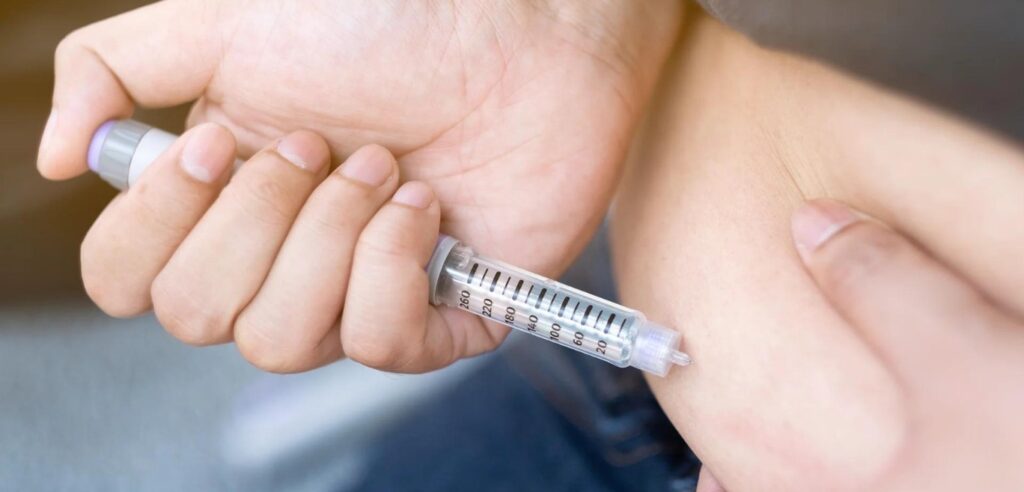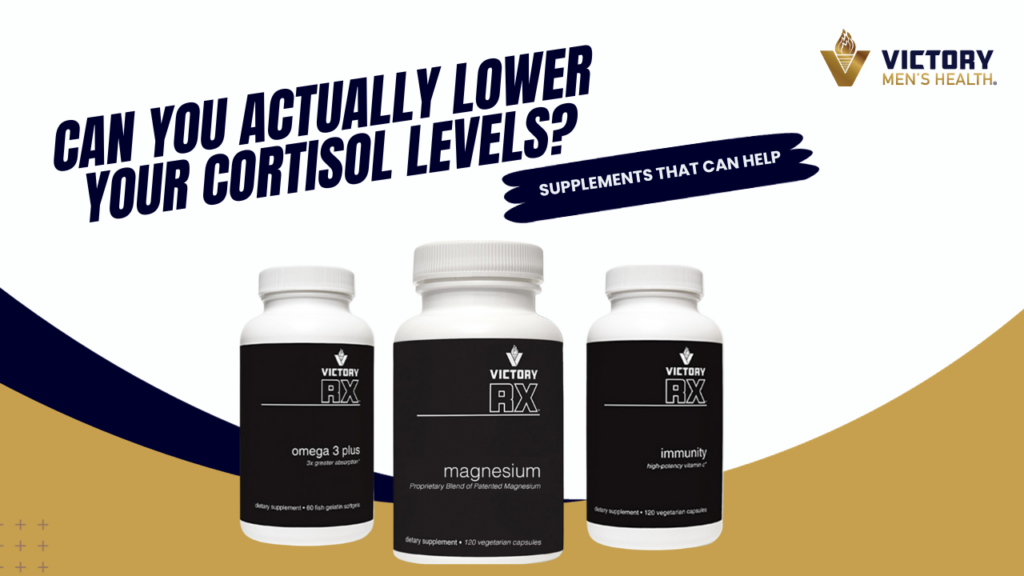When you finally have a solution to symptoms you’ve been struggling with for years, it’s expected that you’d be excited to know how long it will take to see results. Today, we’re diving into a common question for men considering Testosterone Replacement Therapy (TRT): How long does it take to see results? Understanding the timeline can help set realistic expectations for your journey to feeling your best self.

Understanding TRT and Its Benefits
Low testosterone levels can lead to a range of symptoms, including decreased energy, reduced sex drive, depression, and difficulties in maintaining muscle mass. TRT is a very effective treatment designed to boost these hormone levels and help you get back that “zest” for life.
I’m starting TRT soon – when will I see results?
Testosterone is a crucial hormone for men, impacting both their physical and mental well-being. The increasing prevalence of testosterone deficiency has led to a rise in testosterone therapy. When complemented by lifestyle and nutrition adjustments, testosterone replacement therapy can significantly enhance a man’s overall wellness. The first 6-12 weeks can provide impactful results for many patients, however, the timeline and extent of these benefits depend on factors such as a proper diet, regular exercise, thorough bloodwork, and precise management by healthcare providers to ensure correct dosing and application. Initiating the journey into testosterone therapy is just the beginning; however, its positive impact may not be as substantial if food quality is low and intentional movement is lacking.
Sex Drive
You might start noticing an increase in your libido within 3 to 4 weeks of starting TRT. Maximum effects are typically seen around the 6-week mark. It’s important to note that issues like erectile dysfunction may take a bit longer to improve.
When it comes to ED, there are several factors at play that could be impacting your performance. If ED is a concern, while Testosterone Replacement Therapy can help, we also recommend creating a tailored plan based on your specific hormone levels. TRT can feel like a magic injection, but one size doesn’t fit all. To learn more about ED treatment, check out this free resource.
Energy Levels
Increased energy and stamina generally start improving after about 4-8 weeks, with gradual improvements continuing over time.
Muscle Mass
Expect changes in body composition, like increased muscle mass and reduced fat, to start showing between the 3rd and 4th month. These changes usually level off after 6 to 12 months, with continuous gradual improvements alongside regular exercise and ongoing TRT.
Mood
If you’re experiencing mood swings or depression, improvements usually become noticeable around 6 weeks, with the full effects taking up to 6 months.
How long does TRT results last?
Long-term commitment to TRT is often necessary to maintain its benefits. Regular monitoring by our hormone specialists ensures the continued effectiveness of the treatment.
When You’ll See Effects After Testosterone Injections:
The response to testosterone injections varies, but there’s a general timeline for the expected changes:
- Libido: Improvements in sexual interest and satisfaction typically start within 3 weeks, plateauing at about 6 weeks.
- Mood: Noticeable changes in mood and depressive symptoms can be expected after 3-6 weeks, with maximum benefits after 18-30 weeks.
- Insulin Sensitivity: Improvements may be seen within a few days, though effects on glycemic control take 3-12 months.
- Body Composition: Changes in fat mass, lean body mass, and muscle strength start within 12-16 weeks, stabilizing at 6-12 months.
- Bone Density: Effects on bone density are detectable after 6 months and continue for at least three years.
Individual responses to TRT vary. Most individuals start to notice significant changes within 4 to 6 weeks, but this timeline can differ based on individual health factors and lifestyle choices.
Testosterone Injection Timeline
Here’s a visual timeline of what to expect from testosterone injections:
- Within a few days: Improved insulin sensitivity.
- 3 weeks after treatment begins: Enhanced sex drive, mood improvements, and better quality of life.
- 4 weeks after starting: Improved lipid profile and sexual performance.
- 3 months (12 weeks) from the start: Better glycemic control, increased exercise capacity, and noticeable changes in body composition.
- 6 months into treatment: Increased bone density and possible changes in PSA levels.
- 12-month benefits: Peak effects on red blood cell formation, stabilized muscle strengthening, improved mood, and overall health.
Life after one year of Testosterone Replacement Therapy:
Imagine this: After one year of Testosterone Replacement Therapy, you wake up each morning with a renewed zest for life. Aging is inevitable, but accepting hormone imbalance is not. You now experience the peak effects of erythropoiesis, enhancing your vitality.
Your blood sugar levels are under control, reflecting in your stabilized muscle strength and increased bone density. Your mood is consistently uplifted, painting each day with positivity. Your sexual health has rejuvenated, bringing back intimacy and confidence. You look in the mirror to see a leaner, more toned physique. Nights are filled with deep, restorative sleep, and you wake up with a clear, sharp mind ready to tackle the day. Even your doctor notes the positive changes improved appearance, and better cardiovascular health marked by lower blood pressure, cholesterol, and triglyceride levels. Your capacity for physical activity has skyrocketed, allowing you to enjoy activities you once loved with newfound energy.
This could be your new reality after a year of tailored Testosterone Replacement Therapy, a life where you feel better than ever and fully embrace every moment.
Ready to get started?
At Victory Men’s Health, we understand that each individual is unique. That’s why we emphasize personalized care. Testosterone injections provide the most control over your dosage, allowing us to monitor and adjust your treatment based on your specific needs.
If you’re ready to address symptoms of low testosterone, Victory Men’s Health is here to help. We offer comprehensive hormone panels to determine your specific needs and tailor a treatment plan that’s right for you. Serving clients in Missouri and Illinois via telehealth, as well as through our three physical locations, we’re committed to helping you feel like the best version of yourself.
Testosterone Replacement Therapy is a journey, not a race. It requires patience, commitment, and a partnership with healthcare professionals who understand the nuances of men’s health. At Victory Men’s Health, we’re dedicated to guiding you through this journey, ensuring you achieve the best possible results for a healthier, happier life. Ready to start? Contact us today to schedule a consultation and take the first step towards balancing your hormones and reclaiming your vitality.
